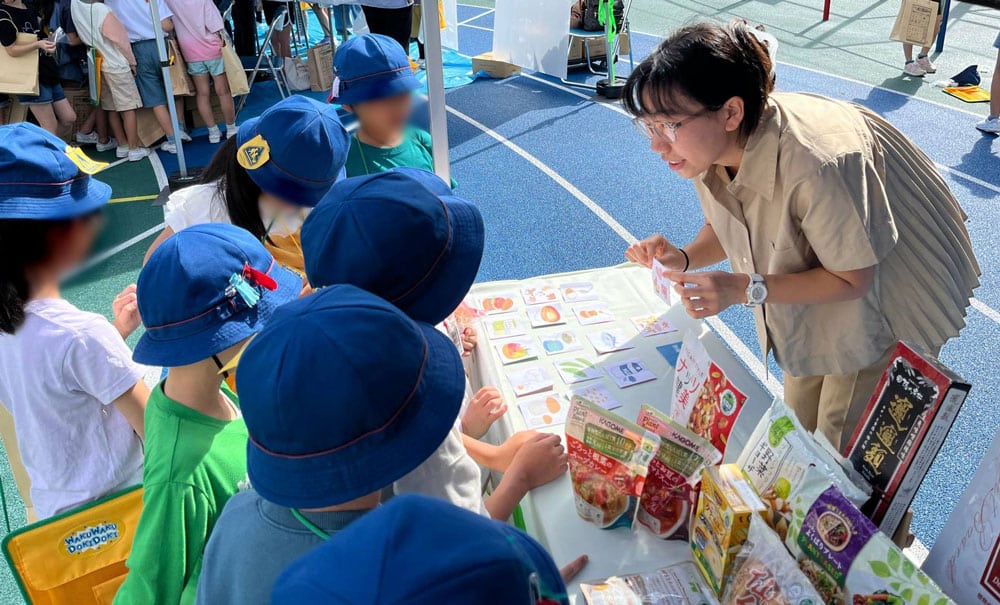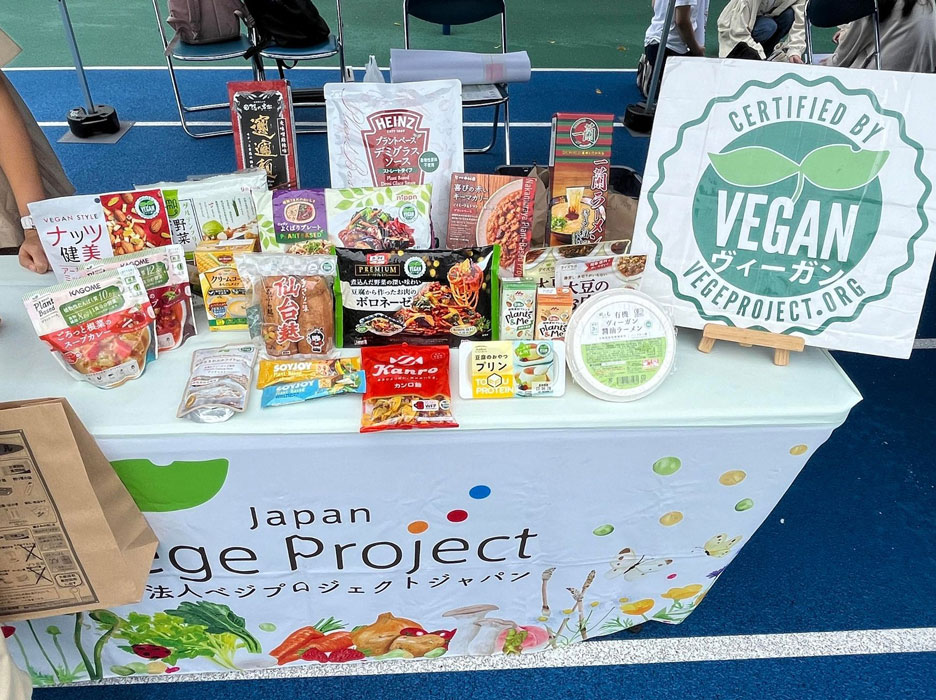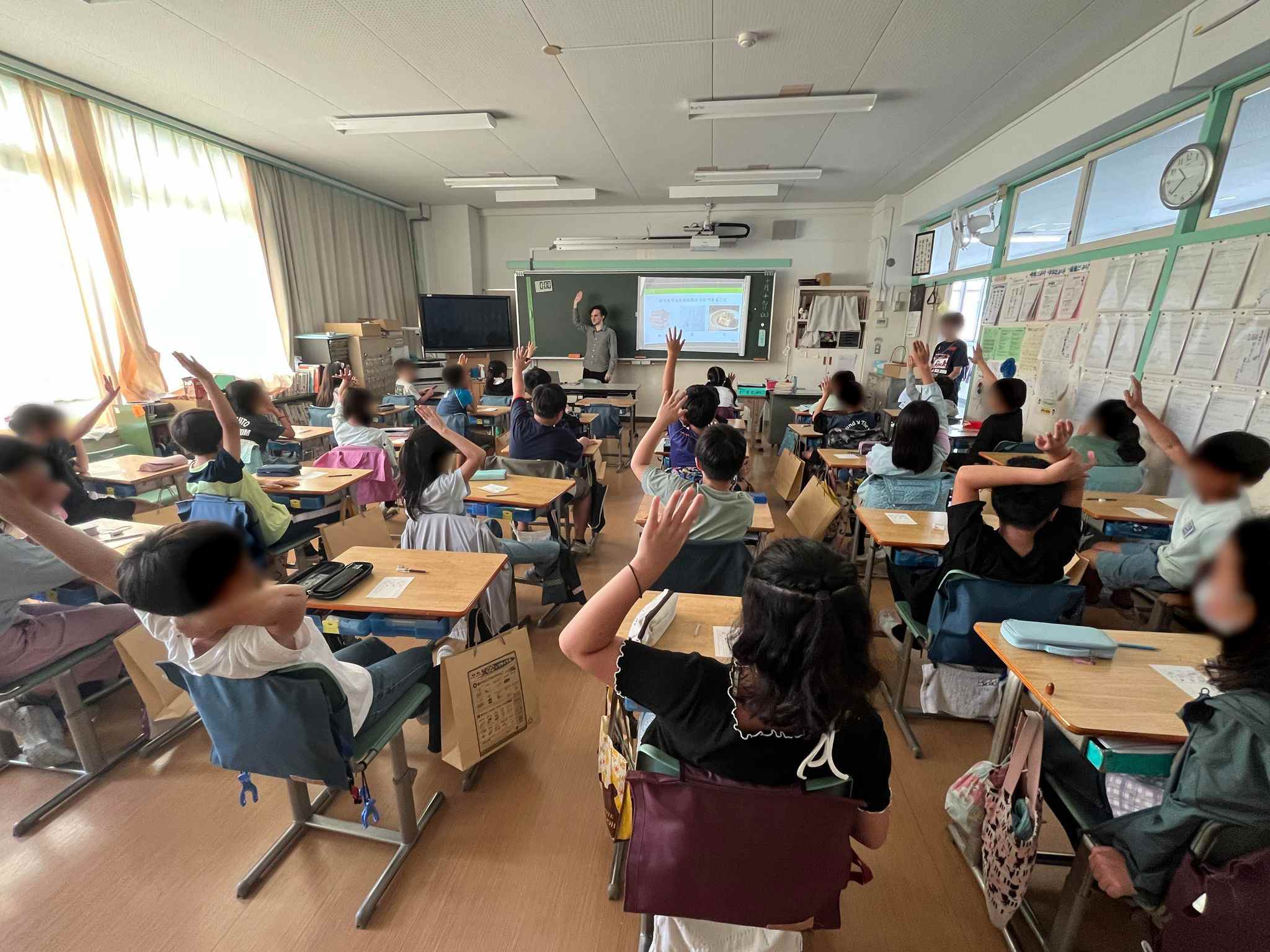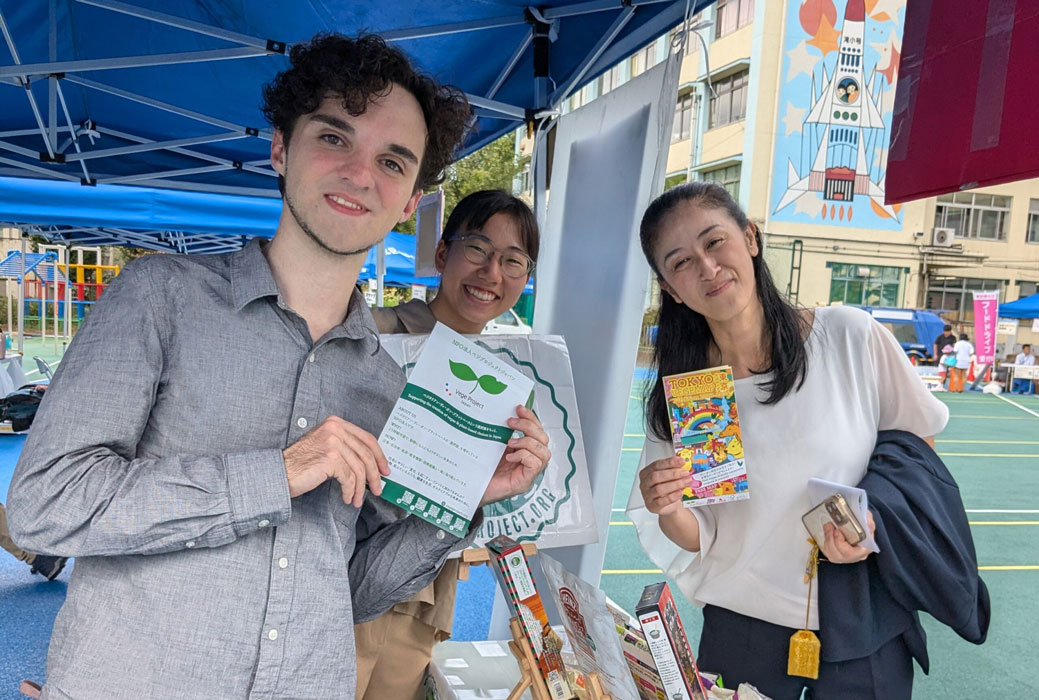On October 19, 2024, the 19th Kita City Environmental Fair was held at Takinogawa Elementary School in Kita City.
This event provides an opportunity for children to learn about environmental protection through activities organized by businesses and nonprofit organizations based in Kita City. In the schoolyard, booths were set up by various groups featuring panel exhibits and activities.
Our organization, VegeProject Japan, was invited to participate. We exhibited a booth and also conducted a series of lessons for elementary school students.
Bringing Veganism Closer through Quizzes


In the morning, children freely visited various booths and learned about environmental issues and the work of each organization.
At our booth, we conducted an activity where children could learn about the connections between food choices and the environment, animals, and human lives by flipping cards depicting food items or titles. We also displayed familiar vegan-certified products, found in supermarkets and convenience stores, to show that delicious meals can be enjoyed without using meat or fish.
Classes on the Relation Between Food and Environmental Issues

Our organization conducted a class for three fourth-grade classes, introducing the relationship between the consumption of plant-based foods and environmental issues.
In the class, we first asked the students for their opinions, discussing the theme of “Why be concerned about environmental issues, or why not?” Based on this discussion, we explained how issues like “deforestation” and “global warming” affect people and animals and explored why these are considered “problems.”
We then introduced choosing “plant-based protein” as one of the ways to help reduce environmental issues. By actively choosing plant-based proteins like tofu or soy meat instead of animal protein, we explained, we can make a better use of natural resources and contribute to reducing deforestation, global warming, and food scarcity issues.
At the end of the lesson, we also introduced “vegan food”, which is made without animal products, and noted that it is available at well-known establishments.
During the class, many students raised their hands enthusiastically. In a survey conducted anonymously after the class, about 98% of students reported an increased interest in environmental issues, and about 90% expressed a desire to consume more plant-based protein. Below are some of their reflections from the survey:
“I felt I want to start with things can do in everyday life, like ‘choosing tofu,’ ‘planting trees,’ or ‘turning off lights,’ to help with global warming and animal welfare. I was amazed that tofu can be used to make meat.”
“I was surprised to learn that vegan dishes are also available at stores I am familiar with. I also realized that reducing global warming requires us to stop deforestation, and that [eating less meat] is also important. I now want to eat more plant-based proteins. I also feel that raising animals in cramped spaces is sad.”
“I didn’t know much about veganism before, but today’s lesson made me think it’s important. I understood that veganism contributes to various aspects of protecting the planet. I’ll make sure to eat the vegetables served at home.”
In the afternoon, the booths in the schoolyard were open to the public, welcoming families of the students and local residents. Additionally, we were honored to welcome Ms. Kanako Yamada, Mayor of Kita City, to our booth, where we explained our activities, including the introduction of vegan-friendly establishments in Tokyo through the Tokyo VegeMap.
 Our staff (left, center) with Kita City Mayor Kanako Yamada (right)
Our staff (left, center) with Kita City Mayor Kanako Yamada (right)
We would like to extend our heartfelt gratitude to the Kita City Environmental Fair Executive Committee for organizing this event, Takinogawa Elementary School for allowing us to host the booth and conduct a guest lecture, and all those who attended.
